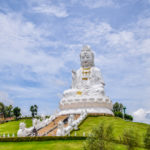As a visitor to Thailand on holiday, you are likely to notice celebrations happening at Thai temples throughout Bangkok and the countryside. In the afternoon or at dusk, you might hear the echo of the Buddhist monks chanting from the temples and creating beautiful harmonies that can be heard in the streets. In order to understand why the local people are gathering and how you might respectfully observe their sacred celebrations, let’s learn about the upcoming holiday of Makha Bucha Day.
Buddhism in Thailand
Though Thailand has no official state-sanctioned religion, it is estimated that about 95% of Thai people follow Theraveda Buddhism. This “School of the Elders” branch of Buddhism developed in South Asia and spread to the southeast through Sri Lanka, Myanmar, Thailand, Laos, and Cambodia. As one of the oldest schools of Buddhism, it tends to be conservative and focused on discipline.
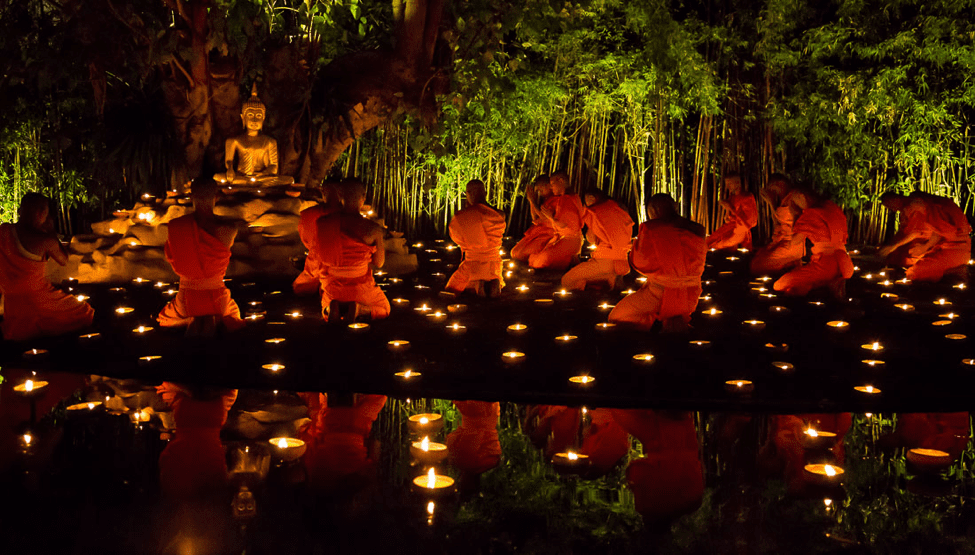
History of Makha Bucha Day
Makha Bucha Day is the anniversary of a special event that took place 9 months after Buddha achieved enlightenment. On this day in history, it is believed that a spontaneous event happened in a miraculous way. First, there was a full moon during the third month of the year. That night, it is reported that 1,250 monks all gathered together to spontaneously pay respect to Buddha. It happened to be that every monk who gathered that day was ordained by the Buddha himself and therefore his direct spiritual disciples. A funny coincidence is that it just so happened that each monk at the gathering was a phra orahan or a “saint” that had already reached nirvana. It is believed that the large gathering of monks were not called and had not organized a specific meeting time or place.
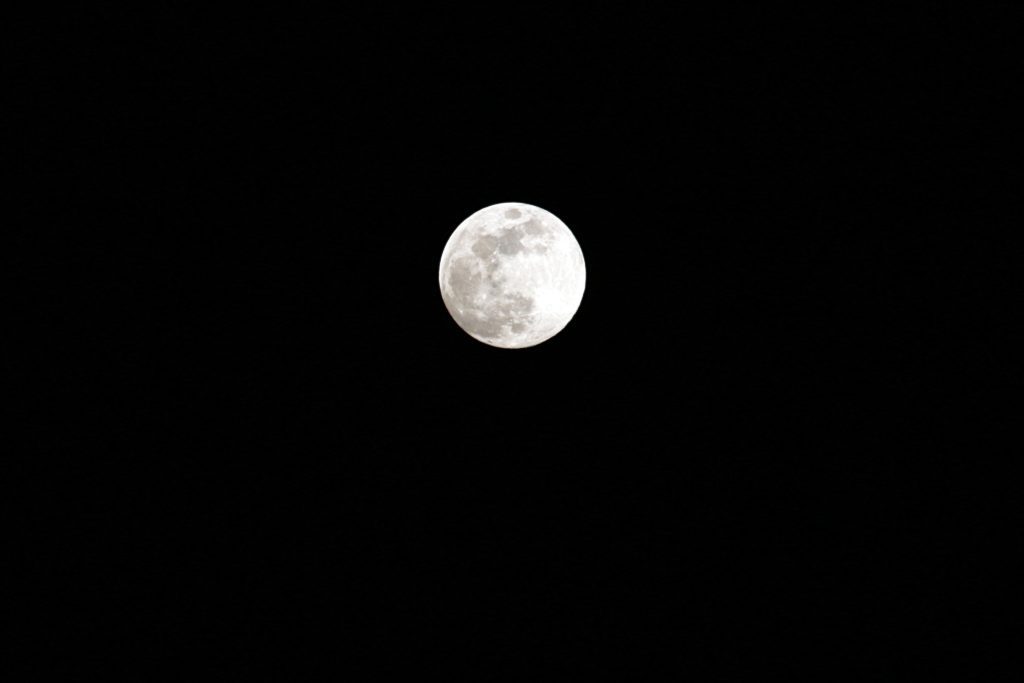
As the enlightened monks came together to show spontaneous gratitude to their teacher, Buddha took advantage of the opportunity to declare the Ovadha Patimokha, or core principles of his doctrine, to his closest followers. Among other things, the Buddha announced that good behavior and good thoughts would lead to nirvana enlightenment, naming this as the ultimate goal of the religious movement.
Modern Celebrations in Thailand
Since the original day of revelation began with the purpose of giving thanks and the sainted monks were rewarded with invaluable teachings, Makha Bucha is still considered a day of gratitude and appreciation. Imagine the concept of American Thanksgiving but with holy revelation at its center.
In modern times, devoted Thai Buddhists celebrate Makha Bucha by beginning the day (like most days) by offering food to monks in the morning. As monks live off the goodwill of the people, they walk the streets begging for food in a ceremonious exchange every morning. Thai people also prepare food to deliver to the temples on this day and attend the wat or temple to hear Buddhist sermons in the afternoons.
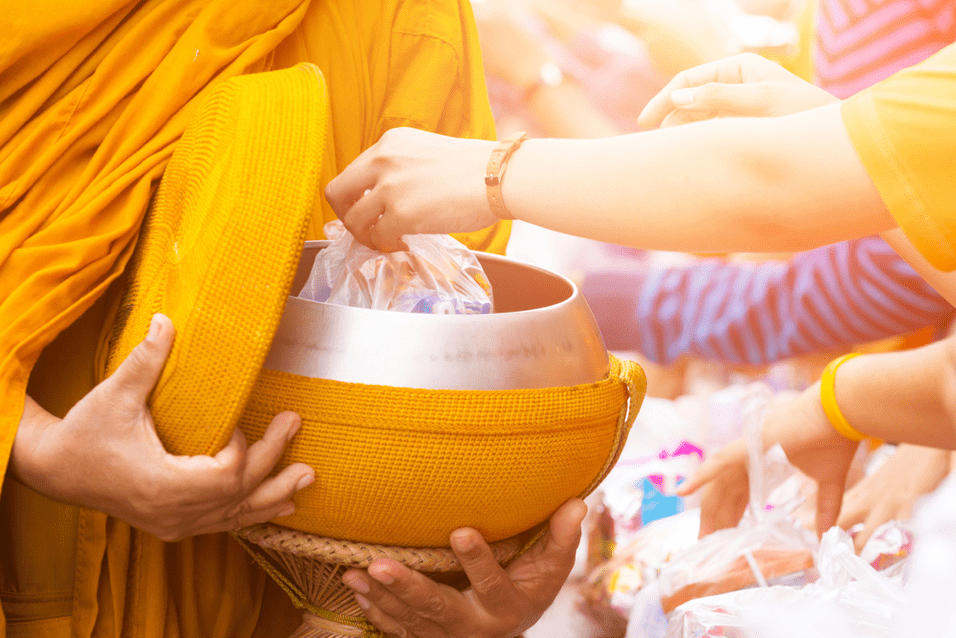
In the evening of Makha Bucha Day, temples will hold a flower and candle procession. Devotees walk in a clockwise direction, making three circuits to remind themselves of the Buddha and his teachings. Similar festivals take place for Buddhists across Southeast Asia, including the large annual Shwedagon Pagoda festival in Yangon, Myanmar.
How to be Celebrate as a Tourist
This year, Makha Bucha day falls on February 19, 2019. The first thing visitors to Thailand often realize on Makha Bucha day is that many restaurants and shops will not sell alcohol. Abstaining from alcohol is a Buddhist precept observed especially on holy days. This means that shops, including the 7-11, will refuse alcohol sales for a full 24 hours. The legal observance is encouraged by the Thai government and enforced by the police, so it is not exactly optional. Bars often close and restaurants post signs to avoid confrontation with tourists. As a visitor, you are expected to plan ahead by purchasing from a shop the day before or try side streets and hotel bars that may still be serving. Banks and shopping malls remain open.
To observe a Makha Bucha Day ceremony, temples are open to the public and visitors are free to enter for the evening celebration. Please use general temple behavior during the ceremonies. Ask permission before photographing people at their place of worship. Keep your voice down and stand or kneel in a place that avoids interrupting worshippers. Dress appropriately by fully covering your legs to the ankles and ensure your shoulders are not bare.
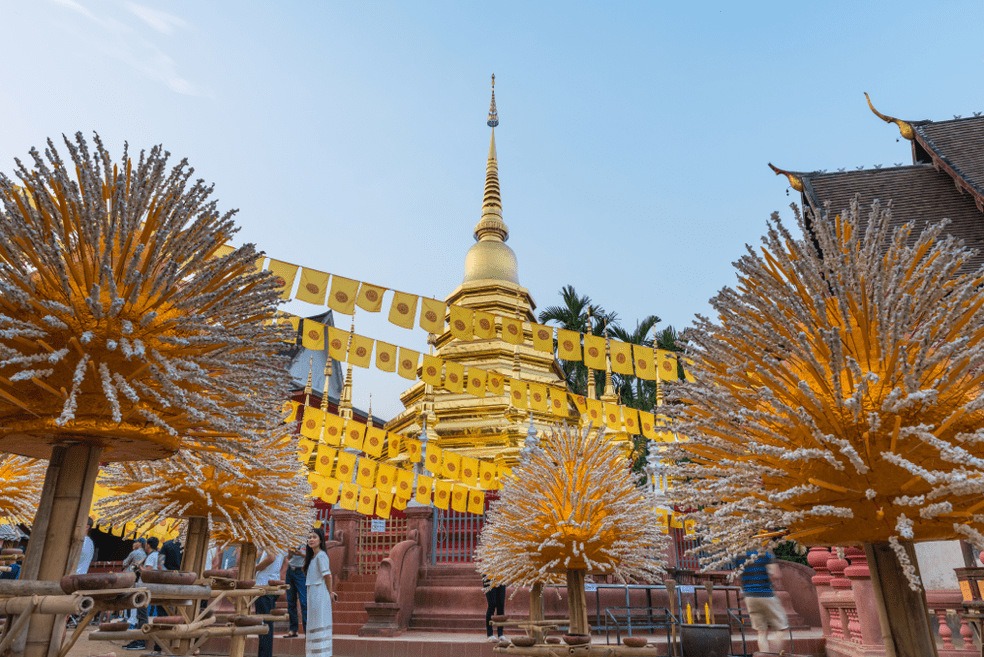
Morning offerings are another way for tourists to take part in Makha Bucha Day celebrations. Thai grocery stores sell offerings prepared especially for monks. You will recognize them because they look like gift baskets covered in saffron-yellow cellophane or decorations. The baskets include items that monks are not allowed to purchase themselves: food, candles, incense, soaps, and other small hygiene items. To offer items to a monk properly, one should observe Thai custom by kneeling and placing it into their alms bowls. Women, who are not allowed to touch a monk directly, should place offerings on the monk’s cloth, which he places on the ground further from the body to avoid accidental contact. To find an offering place, wake up at dawn and walk towards the temple. You will likely find a group of devotees with similar gifts waiting in a location they know the monks will pass by and can join them to see how it is done.
In addition, tourists can head here to discover special events and other ways to celebrate Makha Bucha Day, like this festival in the Kalama Sai district in Kalasin.
There is an even simpler way to observe the holiday. Showing gratitude is main concept of Makha Bucha Day, so if you show gratitude to those around you then you are celebrating in your own way. If you plan to be in Thailand on Makha Bucha day this year, how will you give thanks? Leave a comment on how you would honor this holiday.





